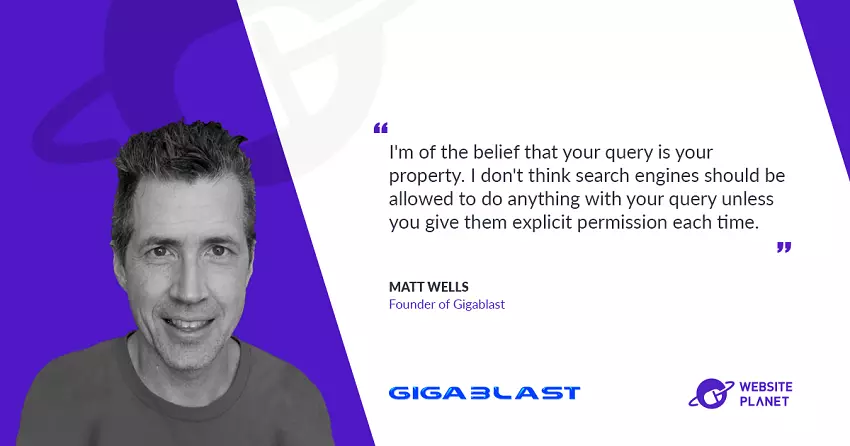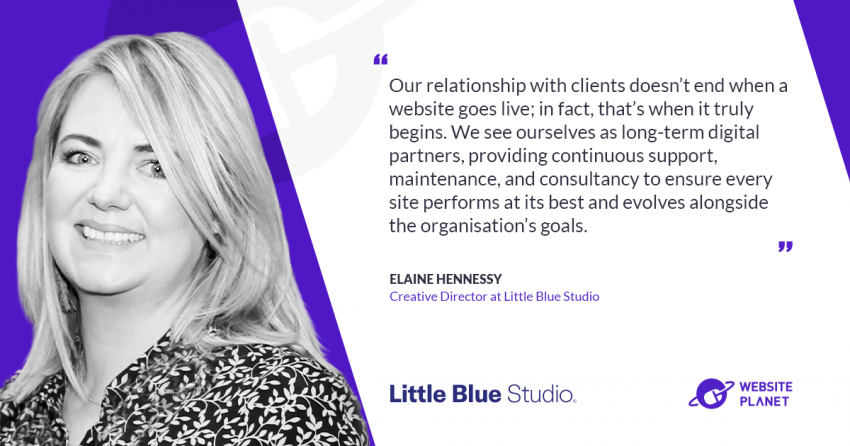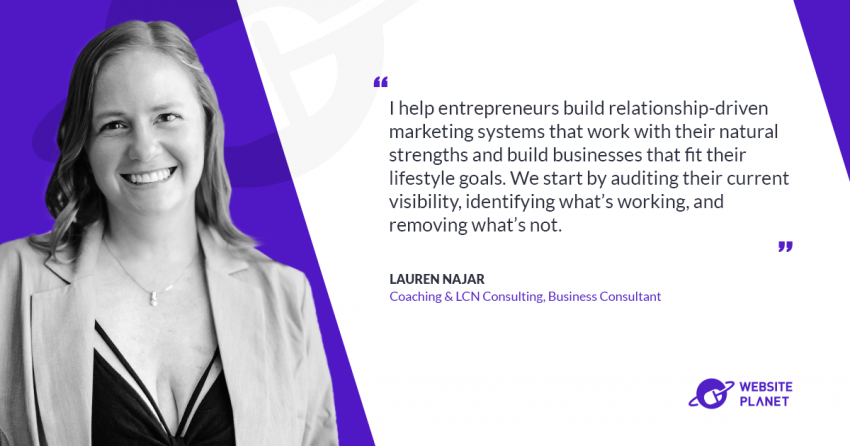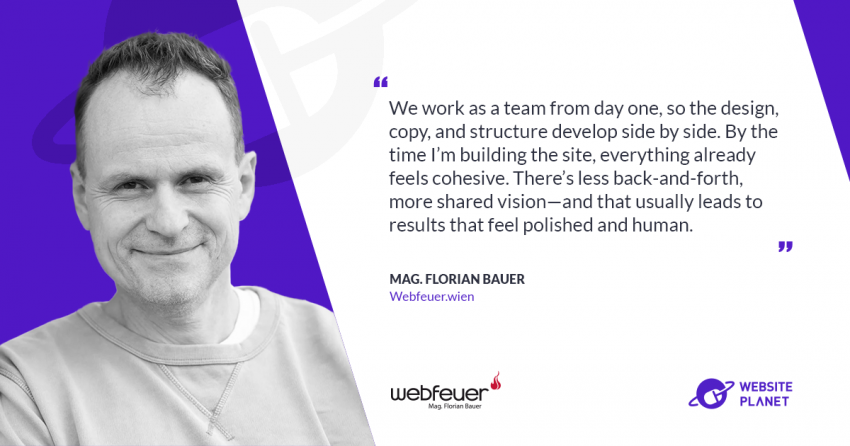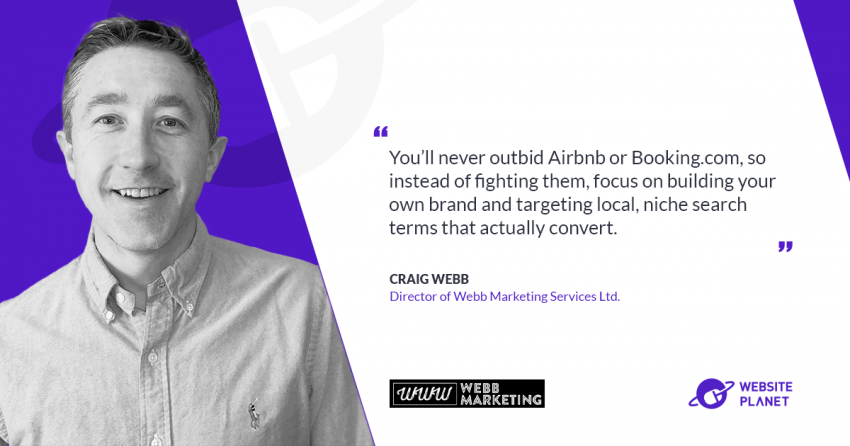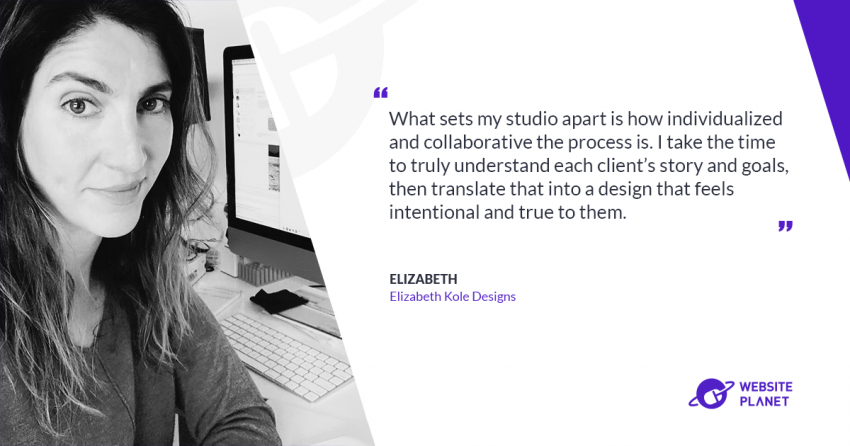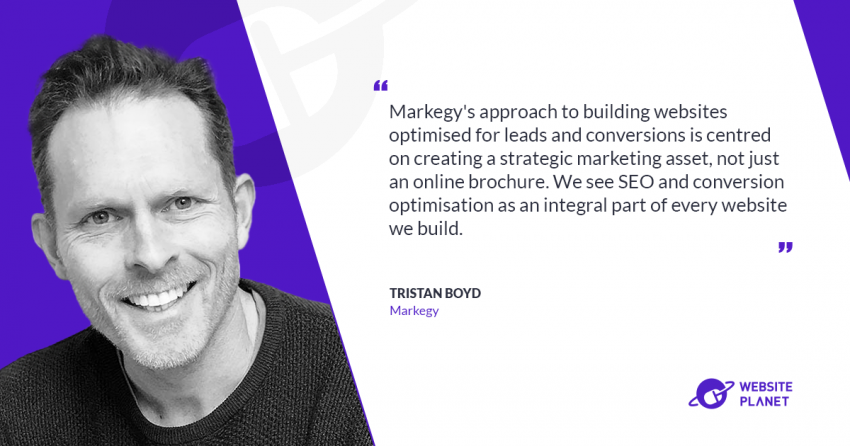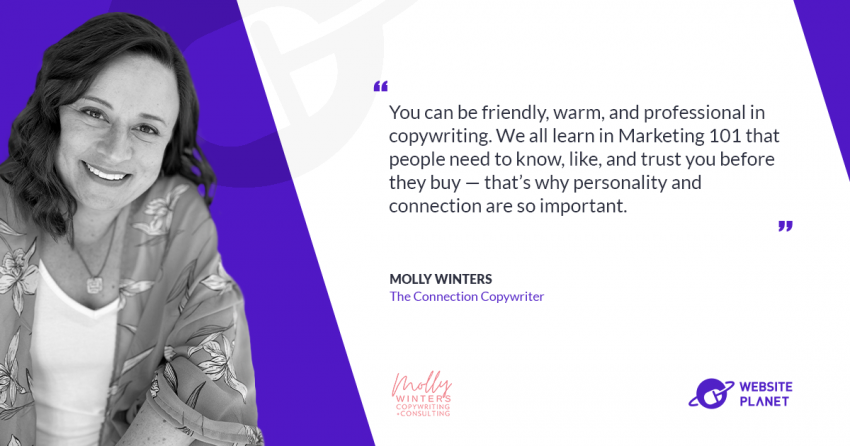You can’t underestimate privacy and data protection in this day and age, especially because we are connected 24/7 and we share important information all the time without knowing how it will be used. Founded in 2000, Gigablast is a search engine that puts privacy at the forefront. We talked with Matt Wells (founder of Gigablast) to know more about the company and its challenges.
Privacy is a hot topic and more people and institutions are worried about what happens to personal data and how it is used. What does Gigablast bring to the table in that sense?
Gigablast doesn’t sell or transfer the query related data it receives. Today’s popular private search engines have to send their queries to Big Tech (Google and Bing) for processing.
Google and Bing use your query to build up various databases like their recommended queries service and also for generating synonyms. So even though you may think your query is private because you are using a popular private search engine, you might notice your query showing up in Google’s search results somewhere.
Gigablast is a true search engine with its own index, not just a proxy, so I can tell you that Gigablast won’t do anything with your query other than just return the search results. I’m of the belief that your query is your property. I don’t think search engines should be allowed to do anything with your query unless you give them explicit permission each time.
Can you explain to us what is the private.sh?
There’s an interesting story behind the private.sh search engine.
A couple of years ago this guy named Andrew Lee emailed me out of the blue. He said he had built the inner core of a private search engine and needed a service like Gigablast to supply it with search results.
At first, I was not sure who this guy was, maybe some really smart spammer! But the more research I did the more I was amazed at his accomplishments, and then I was amazed that he had written this incredible piece of software and had contacted me about providing the encrypted search results.
Andrew co-founded Mt. Gox, and then went on to start a leading VPN in the United States, Private Internet Access, which he sold in 2020 for almost $100M. And if that wasn’t enough, I read that he had recently learned that he was royalty and was selected as the Crown Prince of South Korea. This guy is a walking piece of history, and it is certainly an honor to help him realize his vision for a fair and private internet, which is really part of his larger vision to bring power back to the people. We think everyone should have a chance to be successful, not just Big Tech.
Currently, our plans are to become one of the leading private search engines. We think having our own search engine, with its own index and crawler, gives private.sh a huge advantage over DuckDuckGo, which is really just a proxy for Microsoft’s Bing search engine.
We have been thinking about a plan to raise money to take a shot at getting some of that market share and breaking up the stranglehold Big Tech has on web search right now.
Since Gigablast started, almost 20 years ago, I believe that everything changed multiple times. What challenges did you and your company faced in that period?
Aside from the ongoing problem of not having enough hardware, as I’ll explain below, the biggest challenges right now are centered around Google’s monopolies. Google monopolizes close to 98% of the search ad market. Furthermore, they don’t allow Gigablast, or anyone that might purchase my search results, to put Google ads together with Gigablast search results.
So this makes it all but impossible to sell my search results. I am hoping that the DOJ et al break the Google search ads unit up into at least three pieces, and order them to open up. They are so big and powerful I think it would take at least three. This is probably the biggest reason why you do not see any new web search engines.
And, on a lesser note, Big Tech does not allow their search results to be blended with the search results from other engines. Blending is outright disallowed in the Google’s Terms of Service. What this has done is killed off the meta search ecosystem. We used to have meta search engines that would get results from multiple search engines and blend the search results together with the underlying idea that the results, having been churned through this democratic filter, would be better and less biased.
Perhaps Gigablast did not have the best search results out there, but, through meta search engines, I could still sell my results and make a little money. I think that if it was permissible to blend Google results with Bing and some smaller search engines like Gigablast, then the smaller search engines could make some money, too. Our government needs to step in and level the ice with a giant zamboni, because we are in the territory of end-game capitalism.
Another huge hurdle has been spidering the web because of Cloudflare. They act as a security proxy for millions of websites, and they give
preference to Big Tech’s web crawlers over smaller search engines. When you start crawling the web it is very likely Cloudflare will blacklist your crawler. You’ll need to know somebody or have a really strong legal force to get access to most of the web, as it is behind Cloudflare’s Big Tech firewall. It all so happens that Google and Bing are both investors in Cloudflare, so really it is just an extension of Big Tech.
In the mid 90’s and early 2000’s it was common to see developers, entrepreneurs and enthusiasts writing and talking about the internet as a free space, almost in an idyllic way. We are in 2021 and that vision is mostly gone. Do you think we were too innocent or there’s still a way to return?
I think we can return to that idyllic place again. It’s going to take more work. We have to decentralize and privatize everything. It is happening, but somewhat slowly. Filecoin, and others like them, are attempting to replace BigTech’s data cloud by decentralizing file storage and paying for it with cryptocurrency.
Some other companies like BitChute, a bit more specialized than FileCoin, are working to make decentralized versions of things like YouTube. I know there is some debate as to how decentralized some of these services really are, but at least we know that it is the direction we need to go in.
Furthermore, government intervention can also help restore the marketplace to where merit is once again rewarded, and you don’t have, like, five dudes controlling the entire Internet.
What are your plans for the future? Where can Gigablast go from now on?
The marketing and business plan is to really push private.sh in hopes of becoming one of the leaders in the private search engine space. This is one big puzzle we are working on.
As far as the future of technical problems goes, improving the search quality is high on the list. And a lot of the search result quality is related to the size of the search index. Sometimes I’ll do a query on Gigablast and it’s missing a good result. A really strong guy could probably bench press the amount of hardware I have running the engine right now. So for the sake of improving the results, as well as increasing the speed, I am trying to find a way to get more hardware.
Another big, quality-related problem is the synonym database I have. It’s not too bad, but sometimes I’ll be missing a good synonym for a particular query, and it really makes all the difference. If I had the right synonym then I’d get the really good result.
Also, my synonym algorithm sometimes gets a bit wonky and you might get a result you don’t expect. You can’t just plug in a thesaurus. Sure it might help in some cases, but synonyms in the search engine realm are a little looser than synonyms you’ll find in a thesaurus. For example, if I searched for ‘windows running slow’ it might be good to use ‘performance’ as a synonym for ‘slow’.
